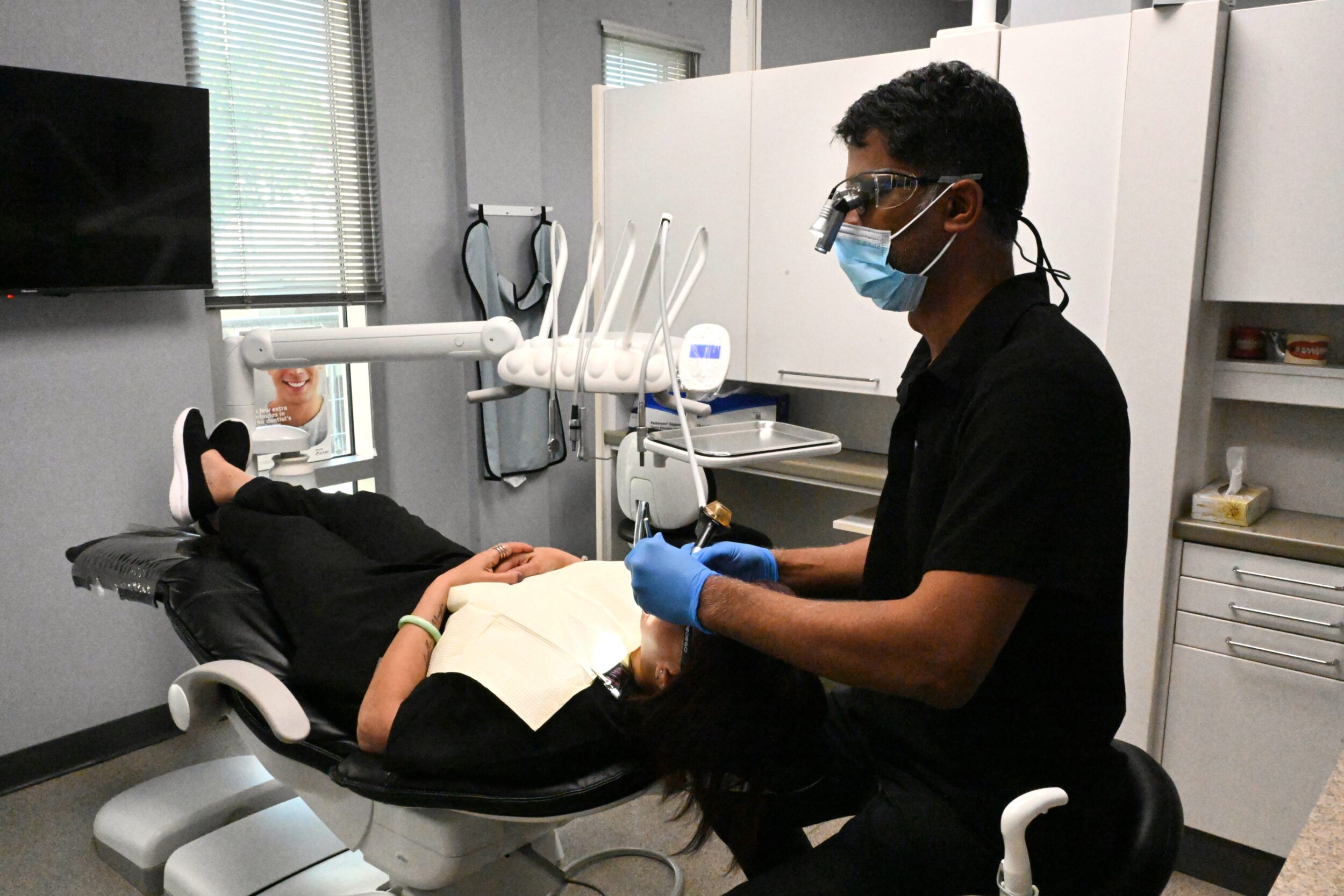Periodontics
“Periodontics” is a dental specialty concerned with the prevention, diagnosis, and treatment of periodontal disease that affects the gums and jawbone. It is the gum tissues that surround and support the teeth, and the underlying jawbone that anchors the teeth firmly in place. A periodontist is a dentist who has completed additional training and is responsible for maintaining the function, health and aesthetics of the jawbone and tissues.

The reasons for periodontal treatment
A periodontal disease is a progressive condition that begins with a mild inflammation of the gums, known as gingivitis. People living in developed countries are most likely to lose teeth as a result of this condition, and it should be taken very seriously. In most cases, periodontal disease (often called gum disease) is characterized by red, swollen, painful, or bleeding gums, although it can also have no symptoms at all.
In general, periodontal disease occurs when the bacteria living in plaque cause an infection in the tissues surrounding the teeth, causing them to become inflamed and painful. As a result of this infection, the jawbone will recede and the tooth will become loose.
Several factors may lead to the need for periodontal treatment:
- Gum disease that is moderate or advanced –
There is bleeding, swelling, or redness around most teeth, and the jawbone is receding. - Localized gum recession –
Infections that propagate moderate or advanced gum disease often begin in one area. The recession of the gums may also be caused by overbrushing with a hard bristle brush, or by an improperly positioned tooth. There is a need to treat the condition as soon as possible in order to prevent further spread of the disease. - Before crown lengthening –
Periodontists may be able to lengthen the crown of the tooth by removing the soft tissue surrounding the tooth in order to expose more of the tooth. - Ridge augmentation –
This procedure, often referred to as “recontouring”, may be necessary in order to correct an uneven gum line. It is important for a periodontist to treat any bacterial infection as well as periodontitis before embarking on a treatment plan.
The periodontist will focus on curing the underlying bacterial infection when treating mild/moderate periodontal problems and will then provide advice on the most appropriate methods for home cleaning.
It is sometimes necessary to perform a deep scaling in order to remove the bacterial plaque and calculus (tartar) from the teeth and tissues. It may be necessary to remove loose teeth that cannot be saved when periodontal disease has advanced and the jawbone has regressed significantly. More intensive cleaning may be recommended in these situations.
Periodontists are trained in all aspects of dental implant procedures, which may be able to restore functionality to the mouth when periodontitis has affected the teeth.
Because periodontitis is progressive, removing bacteria and calculus buildup is essential to halt its spread. It is your dentist’s responsibility to advise you on the most effective cleaning methods and treatment options available to you.